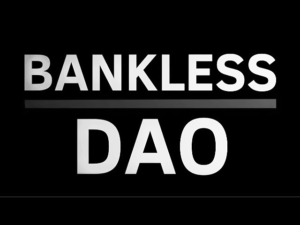14: CityDAO Council Wrap Up & VanlifeDAO // Citizens Series #6 – Favian

Background:
Welcome back to our CityDAO Podcast and our guest for today on our Citizen’s Series Episode is Favian. He is one of the most recently elected CityDAO council members who has finished his 30-day term. This episode tackles more interesting topics and issues within a DAO such as the processes of creating a charter in a DAO, the finalization and impact of the CityDAO charter, and the start of Favian’s VanlifeDAO.
Aside from being a part of CityDAO and contributing much of his time to the CityDAO council, Favian is enjoying his day job as a Civil Rights Litigation Attorney in Washington State. He represents people against governments or companies that did not do the right thing. He is also a van lifer, which means that he is fully living in his van and has been on the road for a year. Favian is a huge evangelist of van life and he is in the process of starting VanlifeDAO.
Time-Stamped Show Notes:
- 2:00 Favian has dedicated more than a hundred hours to CityDAO since he was elected as a council member. There were a lot of meetings, discussions, and research.
- 3:03 Going through a CityDAO council process of achieving self-governance, Favian imagines it as the same process as our founding fathers went through. For Favian, it was an awesome and rewarding experience but it was also frustrating and messy at times.
- 4:21 Favian has a piece of advice for people who want to become DAO council members.
- 5:21 Since the CityDAO council has wrapped up, Favian discusses the next few steps on how CityDAO will evolve.
- 6:04 Favian discusses a few things that he likes about the CityDAO charter.
- 10:21 The process of starting a guild within CityDAO is a work-in-progress, according to Favian.
- 12:49 Eric sees CityDAO as an evolution of job creation. He talks more about the topic of employment within DAOs.
- 15:24 One of the reasons why Favian joined CityDAO is because he was disillusioned with the current governing system.
- 18:16 In terms of community voting within a DAO, Eric likes the idea of a community having the voting power and decision-making capability of allowing or not allowing their country or city to go to war.
- 21:29 Favian shares his insight about war and he thinks localized governance or cities governing themselves and network cities can help make war obsolete in the future.
- 25:24 For Eric, the concept of decentralized governance and voting is a rallying point for everyone to become better people, which makes the collective group such as a town, city, or country, a lot stronger.
- 26:22 Favian is a civil rights litigation attorney and he really enjoys his day job. He is also currently living in his van.
- 27:16 In 2017, Favian was introduced to cryptocurrency and he invested in his first Bitcoin. In 2021, he learned about NFTs and came across CityDAO. Aside from CityDAO, he is also a part of MoonDAO.
- 29:01 Being a van-lifer is a life-changing and eye-opening experience for Favian.
- 30:24 Favian talks more about his van life.
- 34:03 Going all out on having a van life, the entire rig costs Favian about $80,000.
- 35:41 One of the challenges of living in a van is finding a parking area. VanlifeDAO is planning to purchase pieces of land in strategic areas for vans to park and host events.
- 39:55 Currently, VanlifeDAO is completely centralized but as soon as Favian releases the NFT, it will be completely decentralized.
Key Points from the Interview:
- “Another good thing I like about this charter is that once we put it into place, and like I said, hopefully by the time you’re listening, once it’s in place, there is no more council, there is no more centralization in the form of a council, there technically will not be any more core team, so it’s really going to be in the hands of the citizens and citizens are going to have to step up.”
- “I think this CityDAO gives us an opportunity to really reimagine and help be a part of the evolution of the way we govern ourselves with networks instead of top-down hierarchies that I think are outdated now.”
Resources Mentioned:
- Twitter: @VanlifeDAO
- Twitter: @CityDAO
- Instagram: @VanlifeDAO
- CityDAO Discord
- MoonDAO



